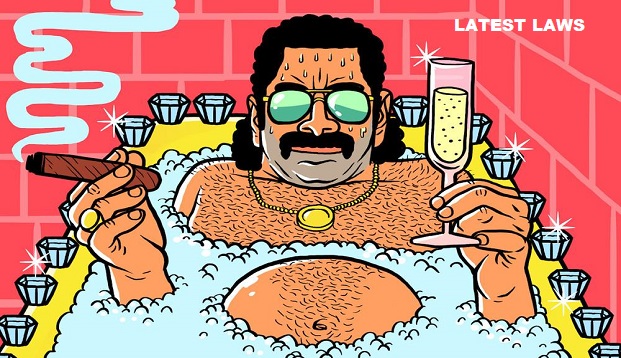November 16, 2017
The wealthiest 10 per cent of people, meanwhile, now own 87.8 per cent of global wealth.
The richest 1% of people in the world now own 1/2 of the planet's wealth, according to the new report that highlights breathtaking levels of global inequality.
The study shows how super-rich have profited from aftermath of 2008 global financial crisis, seeing their proportion of world's wealth increase from 42.5% in the midst of the crisis to 50.1% now.
According to Credit Suisse Global Wealth Report, top 1% are now worth a total of £106 trillion - around 8 times more than the size of the US economy. The wealthiest 10% of people, meanwhile, own 87.8% of the global wealth.
"This downward trend reversed after the year 2008 & the share of the top 1% has been on an upward path ever since, passing the 2000 level in 2013 & achieving new peaks each year thereafter," the report says.
This gaping inequality has resulted in a huge rise in the no. of millionaires & ultra-high-net-worth individuals (those worth more than $30m).
Since 2000, the no. of millionaires in the world has risen by 170%, to 36 million, while the no. of ultra-high-net-worth individuals has increased 5 times over. The UK has the 3rd highest number of millionaires - 6% of the total.
The report states "Increasing inequality can further boost the speed at which new millionaires are created."
At the other hand, the poorest half of world's population - 3.5 billion people - own just 2.7% of the global wealth, reaching a total of $280 trillion.
Charities said that these findings highlighted the need for action from the political leaders internationally.
"The recent Paradise Papers revelations laid bare 1 of the main drivers of inequality i.e. tax-dodging by rich individuals & MNCs. Govts. should act to tackle the extreme inequality that's undermining economies around the world, dividing the societies & making it much harder than ever for the poorest to improve their lives.
This study also found that the millennials face a significant disadvantage compared to the older generations.
Introducing this report, Urs Rohner, the chairman of Credit Suisse board of directors, said, "Those with low wealth tend to be disproportionately found among younger age groups, who've had little chance to accumulate assets but we find that millennials face particularly challenging circumstances compared with other generations."
"High unemployment; tighter mortgage rules; increasing house prices, greater income inequality, less access to pensions & lower income mobility have dealt serious blows to young workers & savers & hold back wealth accumulation by the millennials in many countries."
"With the baby boomers occupying most of the top jobs & the housing, the millennials are doing less well than their parents at the same age, especially in relation to income, home ownership & other dimensions of well being assessed in the report."
Picture Source :

























